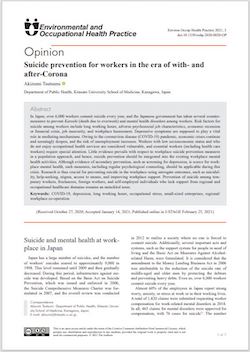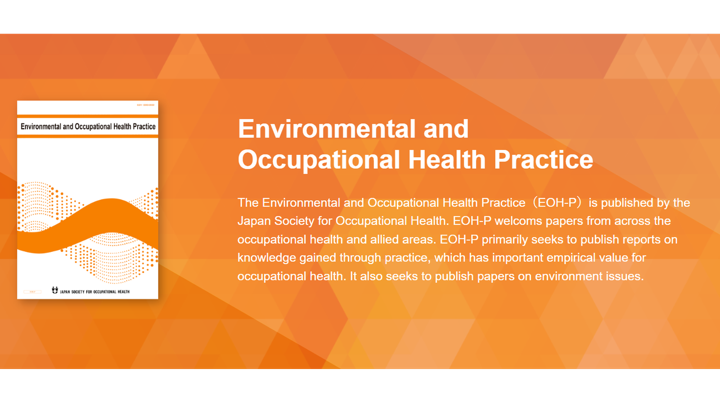#E0028 Suicide prevention for workers in the era of with- and after-Corona

How COVID-19 Will Reshape Suicide Prevention Strategies for Workers in Japan
Japan has a particularly large number of suicides, with approximately 6,000 workers committing suicide each year. Although the government has been adopting countermeasures to reduce health problems caused by overworking and prevent mental health disorders among workers, the specific issue of worker’s suicide remains complex both to study and combat.
In this opinion article, Dr. Akizumi Tsutsumi from Kitasato University School of Medicine discusses the current state of research in (and relevant to) worker’s suicide. He first goes over studied risk factors associated with worker’s suicide and how these have been affected by the COVID-19 pandemic. Known factors include working long hours, economic recession or financial crisis, low job control, lack of support from co-workers, and workplace bullying and harassment.
Tsutsumi highlights that the pandemic has unfortunately exacerbated many of these factors, increasing job insecurity and stress. Moreover, certain groups within the working population are especially vulnerable and require special attention, particularly essential and healthcare workers. Likely, workers with low socioeconomic status and those who do not enjoy occupational health services should be the focus of countermeasures.
The article also summarizes prevention countermeasures against worker’s suicide currently implemented. Even though there’s no conclusive evidence as to the effectiveness of these measures to prevent worker’s suicide or its associated factors (such as depression), Tsutsumi argues that they should be applicable anyway during this ongoing crisis. He also highlights several untackled issues, noting that small-sized enterprises have more difficulties in implementing countermeasures. The best solution to this problem would be increasing the collaboration between regional and prefectural occupational health centers with smaller enterprises. Similarly, for workers who do not enjoy occupational health services, such as freelancers and temporary workers, appropriate support measures should be urgently implemented.
Finally, Tsutsumi remarks on the importance of future research in the field of worker’s suicide prevention. He explains that controlled trials should be conducted while analyzing not just the number of suicides themselves, but other related outcomes like self-harm, help-seeking, and suicide ideation. Overall, we should all remain vigilant about the psychological impact of the pandemic and how the lives and minds of workers have been affected. In this way, we might find opportunities to provide support where needed and help build more resilient communities.

Link to the original journal article:
https://www.jstage.jst.go.jp/article/eohp/3/1/3_2020-0020-OP/_article
Title of the paper:
Suicide prevention for workers in the era of with- and after-Corona
Authors:
Akizumi Tsutsumi




